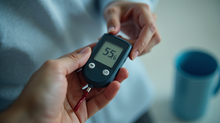Diabetes and Kidney Disease
- Maureen Sullivan RN, CDE, CEN
- Aug 12, 2019
- 2 min read
Diabetes (a.k.a. diabetes mellitus) is a chronic disease in which your body does not make enough insulin or does not utilize properly the insulin it is making. Uncontrolled diabetes, or chronically elevated blood sugar levels, can cause problems for many organs in your body. Blood vessels and nerve endings throughout the body can become inflamed/injured, causing a variety of medical complications. In this article, we will focus on diabetes and its effects on kidneys. Diabetes is currently a leading cause of kidney disease. It is estimated that nearly 1 of 4 adults with diabetes has some form of kidney disease.
The kidneys are organs that are responsible for clearing waste products from your bloodstream. They also play important roles in red blood cell and hormone production, blood pressure regulation and electrolyte balances. When blood sugar levels are uncontrolled for extended periods of time, the kidneys will be adversely affected. The microscopic blood vessels and nerve endings will be injured, often leading to poor kidney function. The impaired kidney is now unable to clear waste products from the bloodstream, leading to higher blood pressure, increased fluid retention and worsening of blood glucose levels.
As the kidney function continues to decline, the affected person may be placed on additional medications, dietary and fluid restrictions. If no improvement, kidney dialysis may be started, which will maintain a proper blood fluid and electrolyte balance in the short term. With further worsening of kidney function, a kidney transplant may be a viable option.
Signs/Symptoms of possible kidney disease may include:
Albumin/protein/creatinine in your urine
High blood pressure readings
Ankle and leg swelling
Frequent nighttime urination
Morning nausea and vomiting
Weakness, and anemia
Well controlled diabetes lowers your risk of medical complications, including kidney disease. Be sure and take all medications as prescribed (some blood pressure medications can actually slow the loss of kidney function), and avoid medications that may cause kidney damage (especially over the counter pain medications). Control your high blood pressure with a well-balanced diet, and seek immediate medical attention for any urinary tract infections (burning, cramping, hesitancy or pain when urinating). Stop smoking, get a good night’s sleep (aim for 7-8hours nightly), and maintain a healthy weight.
Diabetes is a chronic medical condition, but with proper glucose control through diet, exercise and medications, the risk of complications can be minimized.



































Comments